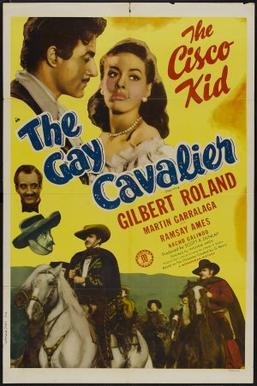

On the other hand, the renowned corporate managers of the business world are Alfred P. Sloan, Jack Welch and Lee Iacocca. Many business owners make decisions unintentionally that lead to them buying a full-time job. For example, naming the business after themselves. “Evans Electric Services” holds little to no brand equity or value for a potential buyer with Thomas for a last name.
Entrepreneurship and management are not mutually exclusive. It’s possible to start a company and run it at the same time. Managers usually have more experience managing and motivating employees than entrepreneurs.
Skills – The role of entrepreneur and manage demand different types of personal skills. An entrepreneur needs intuition, ability among other skills, creative thinking and innovative. Innovation – The entrepreneur does not live with status quo. He works to change in accordance with his or her personal vision and values. But entrepreneur goes much further by exploiting the invention commercially.
Venture – An entrepreneur sets up a new enterprise or undertakes a venture for his personal gratification. As it has been explained earlier in the capital gain that an entrepreneur is liable to take all the parts of the capital gain, but a manager needs to be allowed to receive his monthly salary. And because of these monthly salaries, a manager can switch his commitment towards the company constantly. As an entrepreneur is the sole owner of the business, a person can definitely figure out this simple factor about capital gains, that an entrepreneur is liable to enjoy all the capital gains of the business. An entrepreneur is the backbone of any company, be it a startup or a well-established corporation.
- Self-discipline – Self-discipline is another trait of entrepreneurial minds.
- A manager is concerned about the level of production only as far as his/her job security is concerned.
- On the contrary, the decision making of a manager is calculative, as they are driven by deductive logic, the collection of information and advice.
He or she makes sure everyone is happy and healthy. Managers are usually helpful, kind, patient, and understanding. Managers make sure that their employees are doing what they are supposed to be doing and that they are working efficiently. A manager makes sure that his/her employees are happy and well taken care of.
Nevertheless, professional management comes into play, one way or the other. While many business owners are not even an entrepreneur, let alone a successful entrepreneur, the debate gets even more troubled when the topic shifts to entrepreneur vs professional managers. A person who creates an enterprise, by taking a financial risk in order to get profit, is called an entrepreneur. An individual who takes the responsibility of controlling and administering the organization is known as a manager. Managers translate the entrepreneur’s ideas into practice.QualificationA set of entrepreneurial qualities.A set of managerial qualities.ThinkingAbstract, creative and imaginative.
In addition, they should also approve overtime work to the employees, and authorize their vacations as well. Both involve creating something new from scratch. Management involves planning, organizing, leading, and controlling people and resources. Entrepreneurship involves starting a business, managing employees, and marketing products. The first scholar to introduce the term “entrepreneur” is Richard Clinton.
Entrepreneurs vs. Managers: What’s the big difference?
An entrepreneur may or may not be in control of employees depending on the nature of the business. Even without employees to watch over, an entrepreneur has a great deal of responsibility. On the downside, typical manager brings professionalism into working of an organization. They bring fresh difference between entrepreneur and professional manager perspectives, ideas and approach to trouble shooting which can be invaluable. An entrepreneur and a manager differ in their objectives. Entrepreneur’s objective is to innovate and create and he acts as a change agent whereas a manager’s objective is to supervise and create routines.
Entrepreneurs are people who take risks, work hard, and are willing to learn new skills. They are self-starters, have strong leadership qualities, and are able to see opportunities where other people would miss them. Most of the time, managers work with compliant employees. Entrepreneurs guide from the heart, and they take a moral leadership stance. They serve others and never take the initiative.
Everything you need to know about the difference between entrepreneur and manager. Most entrepreneurs tend to take some risks to convert into opportunities and also help them to retrieve the innovative and creative ideas required for the business. On the other hand, many managers are reluctant from taking risks and uncertainties as this can shake the balance and foundation of the working and functioning of the company. An entrepreneur owns a company, while a manager is the company employee. An entrepreneur is a risk taker who takes financial risks for the enterprise. A manager does not take risks and tries to maintain the status quo of the enterprise.
On the other hand, entrepreneurs like to work alone and do not enjoy working with others. Production increases when everyone is happy and gets along well with one another. He does, however, accept responsibility when something goes wrong. A manager is someone who can show the way, someone to turn to for advice or guidance, and someone, the team, can depend on. A manager is someone who motivates the team members and is there to support them as a contributor. Managers are a component of the system, while entrepreneurs assemble the system’s parts.
A successful manager may make a terrible entrepreneur, and a great business owner may not be a great manager. The professional manager describes the company aims in terms of market segments, yield per worker, and profitability. This means that while, in the eyes of most entrepreneurs, money is a welcome by-product of their efforts; it is not the reason for their efforts. The entrepreneurial organization is characterized by its informal, flexible structure, which allows it to adapt to changes required by its rapid growth. The entrepreneur usually makes decisions, even those of critical importance for his business, on the basis of his own personal intuition and ‘gut feeling’.
Entrepreneur vs Manager: What Is The Difference?
To entrepreneurs, risk and uncertainty are part of the game of entrepreneurship; risk is what makes the game exciting. Managers on the other hand are conservative and detest risk; they simply avoid it. An entrepreneur owns the business; a manager is simply an employee that works in the entrepreneur’s business. A manager is paid to run the entrepreneur’s business.
This can be done through creating a new startup or a new product/service in an existing company where you are a manager. Many of these traits are also good for entrepreneurs to have, because they’re technically “managers” as well, managing the company and staff. A manager is a person who manages a group of people. Managers work closely with their employees to ensure that the goals of the company are met. An entrepreneur is someone who creates new businesses or products. An entrepreneur is also someone who takes risks and tries something new.
The Difference Between Entrepreneur and Manager
A manager oversees the work of other employees while working for an established business. A manager gets reward for the services rendered to the organisation i.e. salary, which is by nature, regular and certain. Innovation – On the other hand the manager keeps running a business on established lines. Manager only deals with day-to-day affairs of a going concern. This is why it takes more courage to take the entrepreneurial path.
Where in which an entrepreneur needs to be committed towards their business even if they receive a capital gain or not. As mentioned before, an entrepreneur is the establisher and the backbone of the organization so naturally an entrepreneur will have the highest level of commitment among various employees of the company. Many entrepreneurs work day and night just to start their own company.
The differences between “innovators”, “entrepreneurs” and “professional managers”
An individual who takes the responsibility of controlling and administering the organisation is known as a manager. The term ‘entrepreneur’ is often contrasted with the term ‘manager’, as they are the key persons in an enterprise that help in the organisation, management, control and administration of the company. An entrepreneur is a person with an idea, skills, and courage to take any risk to pursue that idea, to turn it into reality. On the other hand, manager, as the name suggests, is the person who manages the operations and functions of the organisation. An entrepreneur plays a different role from a small business manager, but a business owner and entrepreneur differ in the reasons of objective.
They are professionally trained individuals who have knowledge about the various business aspects. The most critical thing that an employee working in a company needs to understand is the key differences between entrepreneur and manager. Those key differences can encourage him to keep going in his life. 6. An entrepreneur is the owner of the enterprise but a manager is just an employee in the enterprise of the entrepreneur.